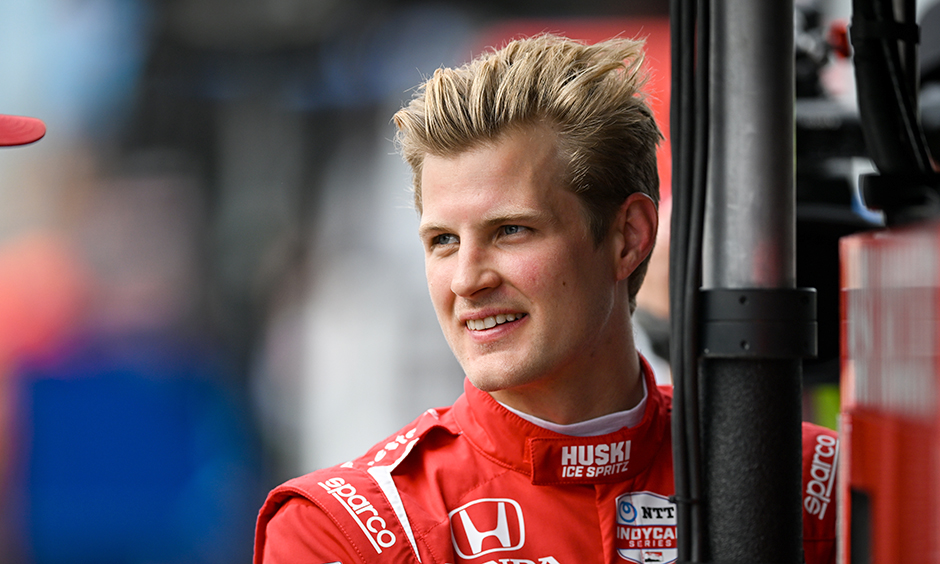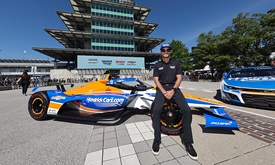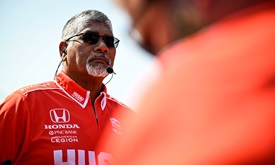Staying Healthy Mentally Is Vital Part of Ericsson’s Strategy
OCT 10, 2023
There is one question Marcus Ericsson hears regularly, and it’s especially appropriate Oct. 10 on World Mental Health Day. The question comes from his mental health coach, Stig Wiklund.
“What’s good with Marcus at the moment?” Wiklund often asks in their weekly calls.
Ericsson, the winner of the 2022 Indianapolis 500 presented by Gainbridge, said the question isn’t posed with a hidden agenda, which is part of the reason it is so impactful. Simply put, it makes Ericsson consider the things that impact his life, for better or worse.
“It’s such a simple question and it might sound a bit silly, but when you think about it and reflect on it, it helps me see things in a different light,” he said. “Maybe there’s nothing special about what’s going on when (Wiklund) asks that, but questions like that sort of puts new thoughts in your head that maybe you haven’t thought of, and I really enjoy that. I find it interesting.”
For years, Ericsson has believed that strong mental health can be a competitive advantage in his motorsports career – that drove his decision to seek a mental health coach – and he said he has taken the meetings to another level over the past year.
In 2023, Ericsson and Wiklund, who is based in Sweden, have met regularly online, and Ericsson believes the exercises have helped him in all parts of his life.
The question above is an example of a strategy Wiklund uses to get the NTT INDYCAR SERIES driver to reflect on the positive aspects in his life, no matter the size.
“Stig is always saying you need to enjoy the small things in life, and I think that’s true,” Ericsson said. “Like, I had a great breakfast, I had a great lunch meeting. Small things. Then you can see positives in that.
“Life always seems to go at a high pace, and sometimes it’s good to pause a bit and reflect. Doing that helps me, and I always find that after these sessions I have a lot of energy and positivity, and that’s why I keep doing them.”
Ericsson considers the sessions part of his training regime, just as going to the gym. In fact, he notes while exercise of any kind helps with his physical fitness, mental health exercises like these improve his mental fitness. He said he and Wiklund rarely focus on racing.
This is personal growth, he said.
“It’s more about just the general mental state you’re in,” he said. “You want to optimize that because if you’re feeling good mentally with what you’re doing in your life, that’s going to help you mentally when you need to perform, regardless of your profession.”
The topic of mental health has been particularly relevant in Ericsson’s native Sweden since the 2018 suicide of world-renowned Swedish DJ Avicii, whose given name was Tim Bergling. After his death, the family launched a foundation focusing on mental illness and suicide prevention, and Ericsson, like so many Swedes, has supported it to keep the public conversation ongoing.
The topic, Ericsson said, needs to be even more mainstream than it is.
“I think (awareness) has (improved), but I still feel like there’s bit a bit of taboo around (mental health),” he said. “Some people are scared and think they are showing weakness when they say they’re working on their mental side, and that for me couldn’t be more wrong. Working on your mental strength and mental health is a show of strength.
“I think working on that shows you want to be the best version of yourself, and that, I think, is a common misperception with mental health. When people come out in whatever sport or profession and say I’m working on my mental health or I’m working with a mental coach, it’s not a weakness – I think it’s the other way around.
“The work (Avicii’s) foundation has done has really helped that, but I think it still has a ways to go, not only in Sweden but around the world.”



















